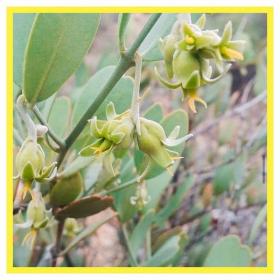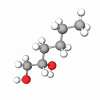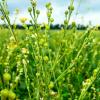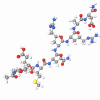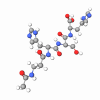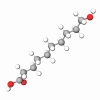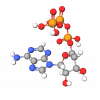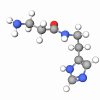It is a remarkable evolutionary story - Isolated in the desert, and Jojoba has traveled its evolutionary path. Unlike other plants, its cells and enzymes produce no glycerol. Instead, it combines fatty alcohols and fatty acids to make a radically different molecule from the oils and fats made by all other plants. The closest nature has ever come to providing such benefits to skincare through cosmetics - was through whale oil. Whale oil used to be the main ingredient in skincare products until the banning of whale killing in 1982. However, even whale oil failed to provide the unique skincare properties that we find in Buxus Chinensis.
Jojoba oil, also known as Buxus Chinensis oil, is a trophy winner ingredient of quality moisturizers, creams, lotions, and a wide range of cosmetic and make-up products. It is included in the composition of almost all kinds of body care formulations up to the concentration of 100%. Why is it so popular? What makes it so appealing to beauty product manufacturers? Let's dig in and uncover the mystery.
Buxus Chinensis is in perfect harmony with the skin. It contributes to the balance in the skin because its structure is almost identical to the natural lipids that maintain young human skin.
Jojoba seed oil is a dense liquid derived from the seeds* of Simmondsia Chinensis. This oil is exceptionally stable and exerts unique beneficial properties for the skin, hair, and nails. However, the exclusiveness of this ingredient is hidden in its composition. It mostly (97%) consists of liquid wax, which is structurally very similar to the natural components of human sebum. So, Jojoba oil is not a plant oil, but it is called so because of its pale yellow color and oily consistency.This liquid wax acts as a perfect emollient, lubricating the skin, sealing it, and blocking its dehydration. Structurally close to the body's natural lubricating agents make skin smooth, moisturized, and radiant without leaving a greasy film on it. It is a relatively lightweight moisturizer that benefits acne treatment as well. The application of the oil stops the production of excess sebum, which usually causes acne breakouts.
Jojoba oil fights wrinkles and skin aging due to its antioxidant activity. Tocopherols (vitamin E) and polyphenols in this oil effectively neutralize free radicals, which are notorious for their collagen damaging action.
It also demonstrates anti-inflammatory and wound healing properties. Inflammation causes collagen and elastin degradation, which negatively affects the skin aspect. Jojoba oil's anti-inflammatory properties prevent skin sagging and wrinkling. In addition to that, research shows that this unique oil activates collagen production, leading to reinforcement of skin scaffolding.Jojoba seed oil is an outstanding performer. It is a comprehensively effective, safe, and stable ingredient that improves human skin, hair, and nails.
*These kernels are also called wild hazel, oat nut, coffeeberry, deer nut, goat nut, pignut, gray box nut, and quinine nut.
Ingredients
About plant
Jojoba oil is the name given to a rich liquid obtained from the seeds of the jojoba tree (Latin; Simmondsia Chinensis or Buxus Chinensis), which grows in the wild in various desertic regions, most famously in Mexico. The oil is very stable, with an exceptional composition bearing a close resemblance to that of the "wax" or oil obtained from whales.
Due to the devastating decline in the number of whales and sanctions which have fortunately been imposed to save guard (with varied success) on these mighty animals, jojoba oil has enjoyed growing success since the 1970s in the cosmetic industry, replacing not only whale 'wax' but also bees wax, Carnauba, and Candelilla.
Production
Cold pressed jojoba oil is the principal method favored by the cosmetic industry and renders anywhere from 40-50 % of the seed used.
Active ingredients and effects on the skin
The epidermis very efficiently absorbs jojoba oil with an almost complete absorption within a matter of minutes. According to one study, the oil is absorbed by hair follicles and accumulates under the corneal layer.The beneficial effects have been clearly shown in medical studies leaving the skin softer and velvety without leaving sticky or greasy traces.
